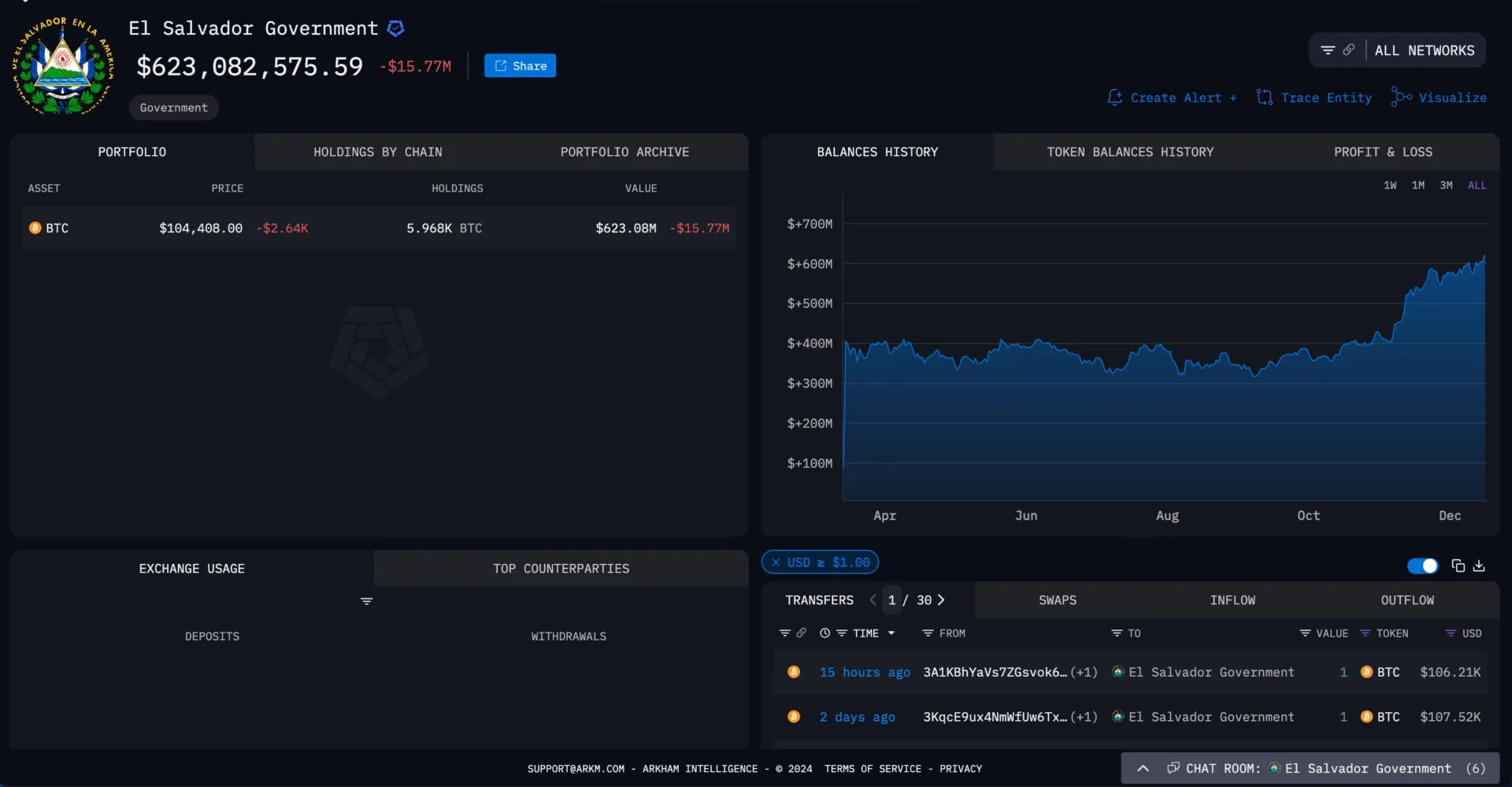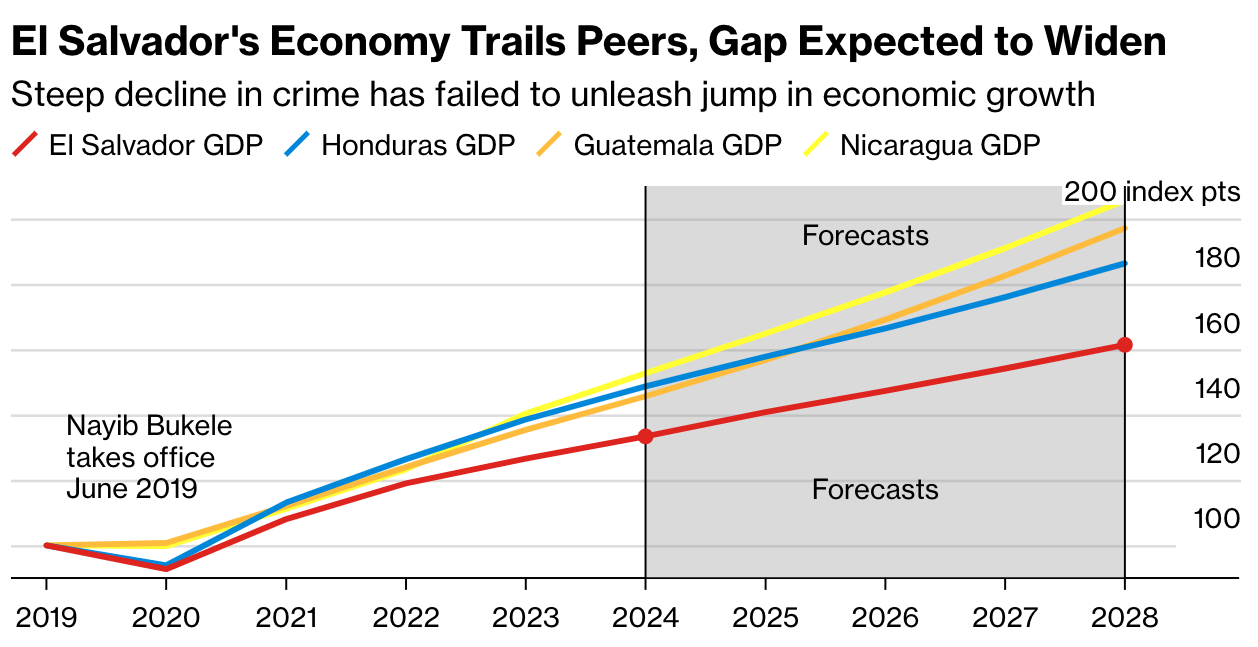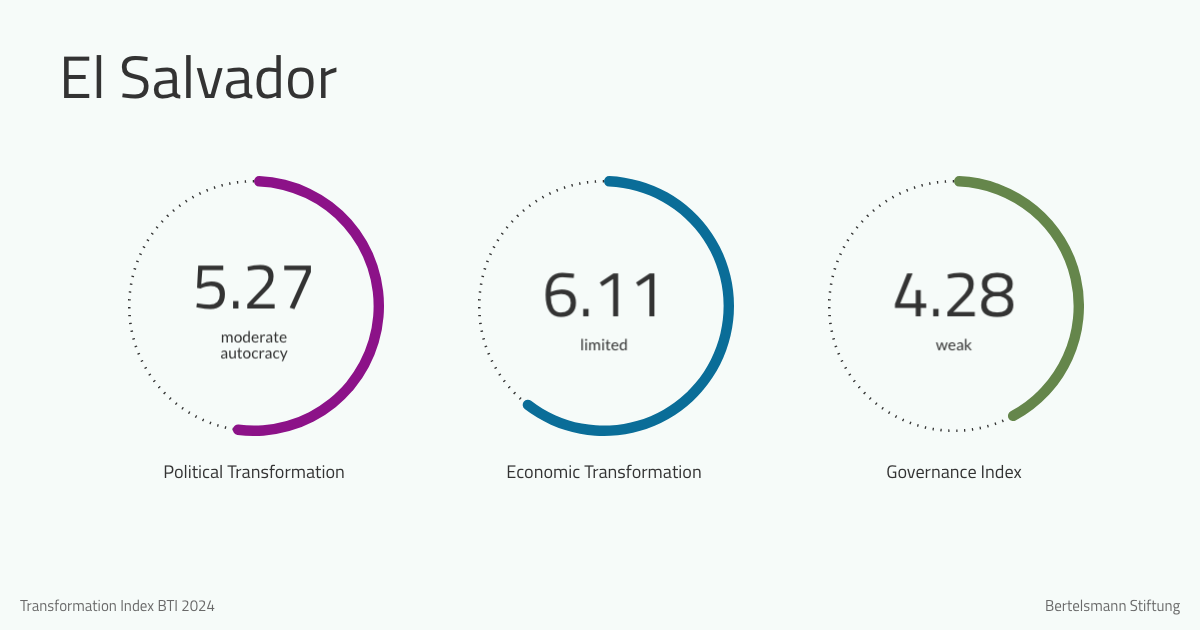President Donald Trump’s victory handed El Salvador’s Bitcoin experiment its first major win. With Bitcoin surging to an all-time high of $100,000, the government’s crypto stash is now worth over $620 million as of press time.
This was a striking reversal of fortune for President Nayib Bukele, who made Bitcoin legal tender in 2021 and faced relentless criticism for it. however, while he’s flexing his profits on X, El Salvador’s economy is facing a grim reckoning.
Trump’s immigration policies could send tens of thousands of Salvadorans back home, threatening remittance flows and straining an already struggling job market. Nayib’s administration is walking a tightrope, balancing the benefits of Bitcoin with the economic realities on the ground.

Nayib has many wins under his belt. For instance, the gangs that preyed on farmers, extorting money or looting supplies, have either been jailed, killed, or fled under his iron-fisted security crackdown. Yet, despite the newfound peace, the economic boom locals hoped for is nowhere to be found.
“We’re not really seeing the peace dividend in terms of a rebound in economic activity,” Mauricio Choussy, a former central bank president, reportedly said. The harsh truth is that even with security improvements, El Salvador’s economy remains one of the weakest in the region.
Bitcoin’s rise amid economic stagnation
El Salvador’s Bitcoin gamble seemed absurd to many when it was launched. Nayib poured millions into buying Bitcoin, built a $200 million trust fund to stabilize its value, and incentivized businesses to accept it. Critics at home and abroad criticized the move, saying it was reckless and would bankrupt the country.
But Trump’s pro-crypto stance and the appointment of a crypto-friendly U.S. securities regulator have turbocharged the market. Bitcoin’s record-breaking rally has been a lifeline for Nayib, whose Bitcoin reserves are now one of the government’s few success stories.

Yet, since he took office in 2019, El Salvador’s GDP growth has lagged behind neighbors, Guatemala and Nicaragua. Honduras, a long-time economic underperformer, surpassed El Salvador’s GDP last year for the first time in more than 30 years.
“The economy is this government’s Achilles’ heel,” said Choussy.
An estimated 750,000 Salvadorans live undocumented in the U.S., and their remittances account for over 20% of El Salvador’s GDP. If Trump follows through on his promises to deport undocumented immigrants, the effects back home would be catastrophic.
Nayib’s economic team is already bracing for impact. An IMF deal worth $1.4 billion, currently in the works, will likely require public-sector layoffs, potentially leaving returning deportees to compete for scarce jobs.
El Salvador’s security facing threats?
Nayib’s iron grip on security has undeniably transformed El Salvador. The country, once dubbed the murder capital of the world, now boasts a homicide rate of just 1.9 per 100,000 people—lower than Canada’s. This has actually brought some wins to the economy.
The IMF said El Salvador’s economy will grow by 3% in 2024. That’s better than the 2% average for Latin America and the Caribbean. The Central Reserve Bank (BCR) agrees and expects growth between 3% and 3.5%. In 2023, the economy grew 3.5%, thanks to public investment, private spending, and stronger exports.

But his successes mask deep structural problems. In rural areas, roads are unpaved, illiteracy is rampant, and access to credit is almost non-existent. Tropical Storm Sara destroyed much of the coffee harvest in Tepecoyo, forcing farmers to sell at generic prices instead of the premium rates usually fetched by Salvadoran coffee.
The housing market boom, fueled by Salvadorans returning from the U.S., has brought some relief. A four-bedroom apartment with an ocean view costs $385,000—affordable for Salvadorans who built wealth abroad but unattainable for locals.
Construction companies call it the biggest housing boom since the civil war ended in 1992. However, while housing thrives, other industries struggle. The textile and apparel sector, El Salvador’s largest export industry, faces fierce competition from Asia, leaving factories empty and workers jobless.
A Step-By-Step System To Launching Your Web3 Career and Landing High-Paying Crypto Jobs in 90 Days.
President Donald Trump’s victory handed El Salvador’s Bitcoin experiment its first major win. With Bitcoin surging to an all-time high of $100,000, the government’s crypto stash is now worth over $620 million as of press time.
This was a striking reversal of fortune for President Nayib Bukele, who made Bitcoin legal tender in 2021 and faced relentless criticism for it. however, while he’s flexing his profits on X, El Salvador’s economy is facing a grim reckoning.
Trump’s immigration policies could send tens of thousands of Salvadorans back home, threatening remittance flows and straining an already struggling job market. Nayib’s administration is walking a tightrope, balancing the benefits of Bitcoin with the economic realities on the ground.

Nayib has many wins under his belt. For instance, the gangs that preyed on farmers, extorting money or looting supplies, have either been jailed, killed, or fled under his iron-fisted security crackdown. Yet, despite the newfound peace, the economic boom locals hoped for is nowhere to be found.
“We’re not really seeing the peace dividend in terms of a rebound in economic activity,” Mauricio Choussy, a former central bank president, reportedly said. The harsh truth is that even with security improvements, El Salvador’s economy remains one of the weakest in the region.
Bitcoin’s rise amid economic stagnation
El Salvador’s Bitcoin gamble seemed absurd to many when it was launched. Nayib poured millions into buying Bitcoin, built a $200 million trust fund to stabilize its value, and incentivized businesses to accept it. Critics at home and abroad criticized the move, saying it was reckless and would bankrupt the country.
But Trump’s pro-crypto stance and the appointment of a crypto-friendly U.S. securities regulator have turbocharged the market. Bitcoin’s record-breaking rally has been a lifeline for Nayib, whose Bitcoin reserves are now one of the government’s few success stories.

Yet, since he took office in 2019, El Salvador’s GDP growth has lagged behind neighbors, Guatemala and Nicaragua. Honduras, a long-time economic underperformer, surpassed El Salvador’s GDP last year for the first time in more than 30 years.
“The economy is this government’s Achilles’ heel,” said Choussy.
An estimated 750,000 Salvadorans live undocumented in the U.S., and their remittances account for over 20% of El Salvador’s GDP. If Trump follows through on his promises to deport undocumented immigrants, the effects back home would be catastrophic.
Nayib’s economic team is already bracing for impact. An IMF deal worth $1.4 billion, currently in the works, will likely require public-sector layoffs, potentially leaving returning deportees to compete for scarce jobs.
El Salvador’s security facing threats?
Nayib’s iron grip on security has undeniably transformed El Salvador. The country, once dubbed the murder capital of the world, now boasts a homicide rate of just 1.9 per 100,000 people—lower than Canada’s. This has actually brought some wins to the economy.
The IMF said El Salvador’s economy will grow by 3% in 2024. That’s better than the 2% average for Latin America and the Caribbean. The Central Reserve Bank (BCR) agrees and expects growth between 3% and 3.5%. In 2023, the economy grew 3.5%, thanks to public investment, private spending, and stronger exports.

But his successes mask deep structural problems. In rural areas, roads are unpaved, illiteracy is rampant, and access to credit is almost non-existent. Tropical Storm Sara destroyed much of the coffee harvest in Tepecoyo, forcing farmers to sell at generic prices instead of the premium rates usually fetched by Salvadoran coffee.
The housing market boom, fueled by Salvadorans returning from the U.S., has brought some relief. A four-bedroom apartment with an ocean view costs $385,000—affordable for Salvadorans who built wealth abroad but unattainable for locals.
Construction companies call it the biggest housing boom since the civil war ended in 1992. However, while housing thrives, other industries struggle. The textile and apparel sector, El Salvador’s largest export industry, faces fierce competition from Asia, leaving factories empty and workers jobless.
A Step-By-Step System To Launching Your Web3 Career and Landing High-Paying Crypto Jobs in 90 Days.





